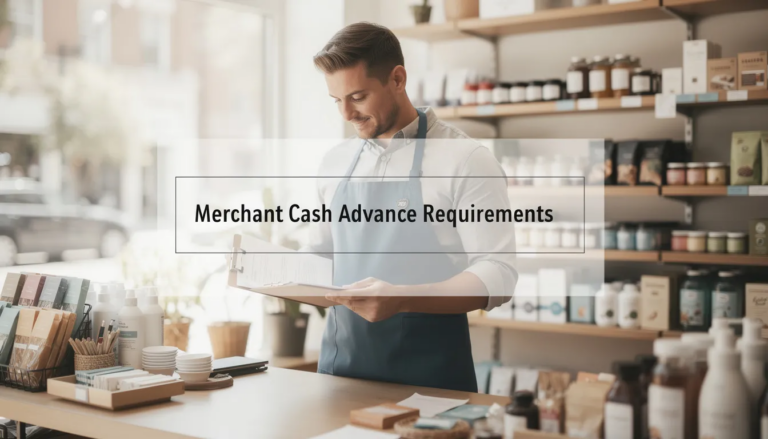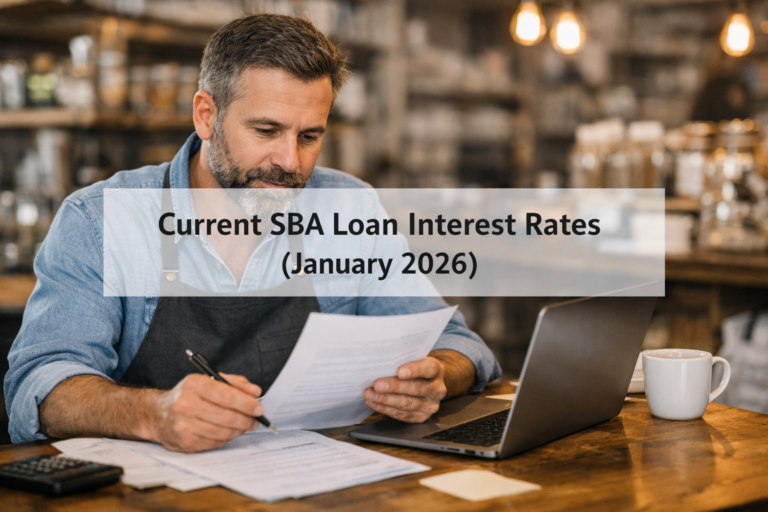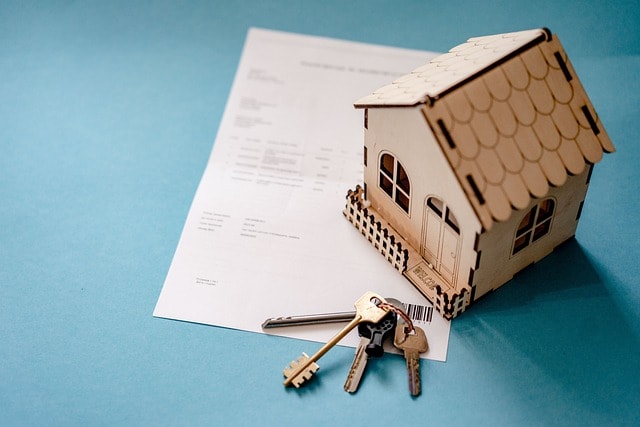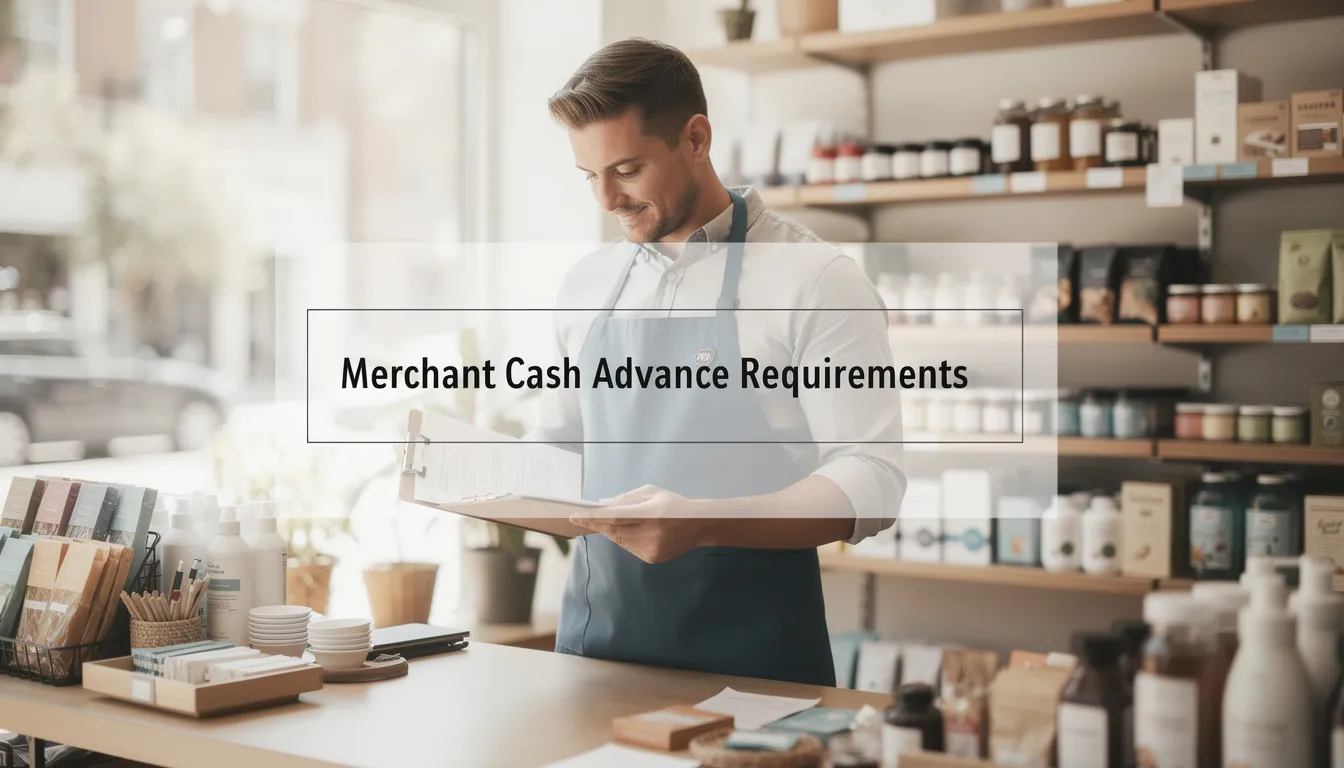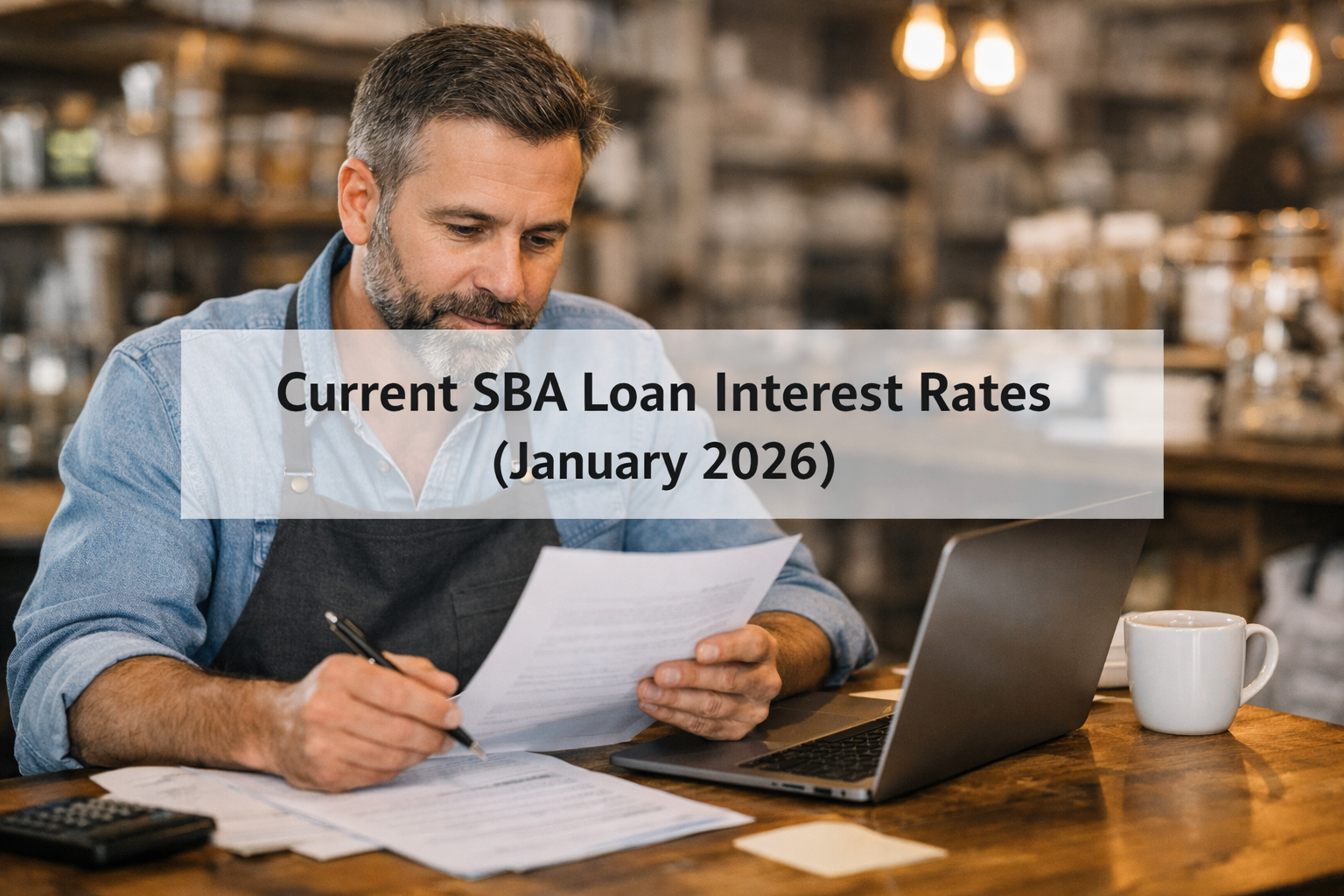What are SBA Loans?
SBA loans refer to multiple small business loan options available through the US Small Business Administration (SBA) and its network of lenders. SBA loan options include:
-
SBA 7(a) Loans.
-
SBA 504 Loans (aka SBA CDC/504 Loans).
-
SBA Export Loans.
The SBA 7(a) loan is the most common and popular loan in the SBA program. There are several subsets of the SBA 7(a), but the standard loan carries a borrowing amount of up to $5 million.
How do SBA Loans work?
While the SBA administers the program, small business owners apply for the loans through a private lender approved by the SBA. Applicants apply to one of three lending institutions: a commercial bank, a credit union, or an alternative loan facilitator, like United Capital Source (UCS).
SBA 7(a) loans can be used for acquisitions, partner buyouts, real estate purchases, and refinances. SBA 504 loans can be used for buying commercial real estate, financing improvements, and purchasing large equipment. The average loan amount for SBA 7(a) loans was $443,097 in FY 2024.
The lending institution approves and funds the loan. The SBA provides a partial guarantee (up to 90% for some loan types). Since the SBA partially backs the loans, lenders can offer higher borrowing amounts at lower interest rates and longer repayment terms.
Companies can use SBA Loan proceeds for various business purposes (the exact use of the funds determines which loan you should get), including a combination debt financing solution. Business owners can get funding for the following:
-
Working capital needs.
-
Equipment and machinery purchases.
-
Fixed asset purchases.
-
Commercial real estate purchases and renovations.
-
Construction costs.
-
Export sales & growing export business.
-
And more.
Once a small business owner applies to a lender, the loan package is sent to the SBA, which determines whether it will guarantee the loan. After receiving notice that the SBA will back the loan, the lender makes a final decision and underwrites the loan. SBA loans typically have low down payments.
Depending on the loan type, it could take anywhere from ten business days to several months to close and fund the loan. Repayment terms range from seven years for a line of credit to 25 years for a commercial real estate loan. Most loans, like working capital and equipment purchases, have a 10-year term. The SBA Express loan can provide faster funding, but has a lower borrowing amount. SBA Microloans offer startup financing, with a cap of $50,000.
Credit approval depends on your business finances, credit score, and revenue. Most SBA loans don’t have prepayment penalties. SBA Microloans provide startup financing, but the cap is $50,000.
What are the Best SBA Lenders?
Every business is unique and has different needs. When searching for an SBA lender, look for one that meets your specific needs. Some lenders cater to particular industries, while others might specialize in the specific loan type you’re seeking. We’ll get more into finding the right SBA lender for your business—lending institutions, including banks, credit unions, and other financial institutions, issue most SBA loans. A wide range of banks are SBA-approved lenders, including Huntington National Bank, Newtek Bank, and JPMorgan Chase Bank. The SBA preferred lenders can make final credit decisions without sending applications to the SBA.
That being said, here’s our list of the 10 best SBA lenders.
Live Oak Banking Company
While the biggest isn’t always the best, that might be the case for Live Oak Banking. The North Carolina-based bank ranked #1 on the SBA’s list of most active lenders (in dollar amounts) for the 2022 fiscal year, approving over $1.7 billion. Live Oak Bank is the second-most active SBA lender by dollar amount in FY 2025.
The company provides both 7(a) and 504 loans. It serves small businesses across the US with an online and streamlined application process. Live Oak Banking also participates in the SBA-preferred lender program (PLP). Applicants need a minimum credit score of 650 to apply.
Huntington National Bank
Huntington National Bank also offers SBA loans of up to $5 million. Huntington National Bank approved over 7,500 7(a) loans totaling over $1.5 billion in FY 2024.
As a local bank, Huntington provides SBA loans in the following states:
-
Colorado
-
Florida
-
Illinois
-
Indiana
-
Kentucky
-
Michigan
-
Minnesota
-
Ohio
-
Pennsylvania
-
Tennessee
-
West Virginia
-
Wisconsin
Huntington Bank provides 7(a) loans, SBA Express loans, and 504 loans. Huntington has a 12-year streak of being named the top SBA lender in the Midwest.
Newtek Small Business Finance
Newtek is the first non-bank lender to appear on our list. The technology solutions company offers a range of business services, including financing. Newtek Bank has approved $1 billion in 7(a) loans in FY 2025.
Newtek provides a streamlined application process, and you can apply through UCS’s one-page application. Newtek is an SBA-preferred lender that provides term loans and lines of credit.
Wells Fargo
Wells Fargo is our top SBA lender for small business owners seeking a traditional banking experience. While other companies offer more streamlined and online applications, Wells Fargo provides the in-person service that can help guide business owners through the SBA application process.
Wells Fargo is one of the SBA’s most active lenders among traditional commercial banks. The banking giant offers 7(a) loans and 504 loans to eligible businesses.
Celtic Bank Corporation
Celtic Bank is an entirely online bank, offering banking services exclusively through its digital platform. It has consistently ranked in the top 10 most active SBA lenders since 2013.
Like many lenders on this list, Celtic Bank offers 7(a) loans and 504 loans. Potential borrowers can complete the bank’s pre-eligibility application in just a few minutes. As an SBA-preferred lender, it can finalize and approve loans faster than other lenders.
Byline Bank
Byline Bank (formerly North Community Bank) has served the Chicago and Milwaukee areas since 1972. While its physical branches are only located in those areas, its online banking services facilitate the SBA program for borrowers nationwide. After applying online, applicants speak to an online banker to complete the process.
Byline Bank is one of the SBA’s top lenders. In addition to 7(a) and 504 loans, Byline offers lines of credit through the SBA CAPLines program.
Funding Circle
Funding Circle is a peer-to-peer lending platform that can connect your application to multiple lenders. Business owners only need to complete a 6-minute application, and their info is sent to the company’s network of lenders.
The company streamlines the application process and eliminates some of the guesswork. The drawback is that you can only apply for up to $500,000.
SmartBiz
SmartBiz is an online lending marketplace that seeks to streamline the SBA loan process. Small business owners often need to shop their SBA application to several lenders before finding one to facilitate the loan. The process is tedious and time-consuming, as each lender has different requirements and procedures.
SmartBiz only requires one online application, which the company shops to its lending partners. Applicants sometimes receive multiple offers from lenders and can choose and customize the best one for their business purposes. SmartBiz does not process SBA 504 loan applications, but you can get a 7(a) loan through them.
ReadyCap Lending
ReadyCap is a non-bank, SBA-preferred lender. The NY-headquartered lender provides multiple business lending products, including SBA 7(a) loans. ReadyCap Lending approved over 1,500 loans under the 7(a) program in FY 2025 for almost $550 million.
As a preferred lender, ReadyCap can approve and underwrite SBA loans faster than other lenders. The company also caters to veteran-owned businesses with special pricing options.
Citizens Bank
Citizens Bank offers SBA 7(a) and 504 loans to small business owners across a wide range of industries. With a focus on customer service and efficient underwriting, Citizens Bank can approve and close SBA loans in about 45 days. The bank works with both new and established businesses, making it a solid choice for borrowers seeking a relationship-based approach.
Northeast Bank
Based in Maine and operating nationally, Northeast Bank is currently the top lender by number of loans approved for SBA 7(a) loans in FY 2025. The bank provides financing for various uses, including working capital, real estate purchases, and business acquisitions. Their expertise in SBA lending makes them a strong partner for small businesses looking for experienced guidance.
Lendistry
Lendistry is a minority-led community development financial institution that provides SBA loans to underserved communities. The lender specializes in supporting minority- and women-owned businesses, as well as companies located in low-income areas. Lendistry combines technology with a mission-driven focus to streamline the SBA loan process and improve access to capital.
Bank of the West
Bank of the West is based in San Francisco and serves the western and midwestern areas. You can get a complete list of their available locations on their website.
With 7(a) loans available up to $5 million and 504 loans up to $15 million, ReadyCap is one of the top choices for large SBA loans. The main drawback to the company is that it’s only available in 20 states.
How do I choose an SBA Lender?
Unfortunately, there’s no precise formula to identify the ideal SBA lender for your loan request. However, the following guiding questions can help you narrow down your selection to determine what to look for in a lender.
What SBA Loans does the lender provide?
The first question is to determine which SBA package you need. SBA 7(a) loans can cover most business expenses, but other specialty loans might better suit your project. Additionally, a business line of credit may be a better option than a term loan if you need assistance covering cash flow during seasonal or slow periods. Some lenders offer multiple SBA-backed loans, while others focus on only one or two.
Where does the lender provide services?
Many online lenders and lending marketplaces that provide SBA loans can service all 50 states, but some do not. If you prefer a traditional in-person loan experience at a brick-and-mortar bank, you need to ensure the bank has a branch in your area.
Do you qualify for the SBA Lender?
One of the more challenging aspects of obtaining a loan through the SBA program is determining if you qualify. The SBA does not establish specific standards, except for a few basic SBA eligibility requirements. Each lender sets its own minimum requirements for credit scores, annual revenue, and time in business, and some are more transparent than others.
Businesses we work with here at UCS that get approved for an SBA loan generally meet the following minimum requirements:
-
Credit score of 650+.
-
$360k in annual revenue.
-
Two+ years in business
Other lenders may require a credit score of 680 or higher. SmartBiz, for example, requires a credit score of 675. Before applying to an SBA lender, verify that you meet their specific qualifications.
The only eligibility guidelines from the SBA are:
-
Be a for-profit business.
-
Do business and be physically located in the US or its territories.
-
Have invested personal time and money in the business.
-
Exhaust all other financing options (must be “last resort financing.”)
Additionally, the SBA instructs lenders to consider cash flow when evaluating a loan. The guidelines stipulate that any repayment must be generated from cash flow. If your business does not have the cash flow to support loan payments, the lender must deny the loan request, per the SBA (and lending best practices).
How long does it take for the lender to close the loan?
The lender’s timeline may play a crucial role in your decision. Some traditional lenders might take 60 days from the initial application to closing the SBA loan and disbursing the funds. Some online lenders attempt to streamline the process by offering convenient online applications and a one-to-many service model to match borrowers with the right lender.
You must ensure that the lender’s timeline aligns with your own. Some longer-term projects have the runway to wait months for a loan to come through. Other projects or expansion goals might require quick funding to seize an available opportunity.
How is the customer service?
SBA loan applications are complex, and some borrowers prefer to work with knowledgeable loan executives. The best SBA lenders will have a reputation for quality service and live experts to talk with and ask questions.
Some fintech lenders use algorithms and automated processes to determine and service loan requests. While that approach can help streamline things, the missing human element can cause issues during the loan process.
When you work with UCS, you’ll get a dedicated loan executive to help you through the process and respond to any issues or questions.
If you’re having trouble getting started with finding an SBA lender, here are some tips to consider:
-
Talk to a lender you already know and ask for advice.
-
Read customer reviews and look at ratings from review sites.
-
Review testimonials and real-world case studies from the lender.
-
Speak to other business leaders you may know or have in your network.
-
Review the SBA’s Lender Match tool to connect to a lender.
How to apply for an SBA Loan:
United Capital Source can help you apply to an SBA-approved lender following these steps.
Step 1: Ensure You Qualify
You’ll need a credit score between 650 and 700 and a healthy, consistent cash flow. How you intend to use the money also plays a significant role. You’ll need a detailed plan of how the funds will help you invest in and grow the business.
Step 2: Gather Your Documents
Be prepared to provide:
-
Driver’s License.
-
Business license or certificate.
-
Voided Business Check (for business bank account information).
-
Bank Statements.
-
Credit Report/Statement of Personal Credit History.
-
Business Tax Returns.
-
Credit Card Processing Statements.
-
Personal Tax Returns – 3 Years.
-
Business Tax Returns – 3 Years.
-
Business Plan (Not in all cases).
-
Personal Financial Statement.
-
List of Real Estate Owned or Business Leases, if applicable.
-
Debt Schedule/Loan/Rent/Lease Documentation
-
Deeds/Title/Ownership documentation for any collateral/Security
-
Current Profit & Loss Statements and Balance Sheet Year-to-Date
-
A/R and A/P Reports
-
United Capital Source 1 Page Application
Step 3: Fill Out the Application
You can begin the application process by calling us or filling out our one-page online application. Either way, you’ll be asked to enter the information from the previous section along with your desired funding amount.
Step 4: Speak to a Representative
Once you apply, a representative will reach out to you to explain the repayment structure, rates, and terms of your available options. This way, you won’t have to worry about any surprises or hidden fees during repayment.
Step 5: Receive Approval
SBA Loans through our network generally take 3-5 weeks to process. Once approved and your file is closed (45-60 days), funds should appear in your bank account in a few business days.
Frequently Asked Questions
Here are the most common questions about SBA lenders.
Is it hard to get an SBA Loan?
Unfortunately, getting a loan through the SBA program can be a challenge. While it may seem logical that a government-backed loan is easier to obtain, the reality is often the opposite. As we stated, the SBA does not provide definitive qualifications; therefore, SBA lenders define their own requirements.
Generally, SBA lenders require good to excellent credit scores, two or more years of business experience, high annual revenue, and a healthy cash flow. SBA loans may be out of reach for younger businesses or business owners with fair to poor credit.
Beyond qualifying for the loan, the application process requires exhaustive documentation and a good amount of patience. We recommend that you gather your documents and prepare your paperwork before starting the application process.
What is a Preferred SBA Lender?
Any SBA-approved lender can service the SBA loan program, but financial institutions in the Preferred Lender Program have additional autonomy. SBA-preferred lenders have the authority to make a final credit decision on an SBA loan request. By contrast, a standard approved lender must submit the loan application to the SBA for it to approve the guaranteed portion of the loan.
What are the Best Lenders for SBA 504 Loans?
Finding the best lenders for SBA 504 loans is complicated because of the unique nature of this loan program. 504 loans require working with a Certified Development Company (CDC). CDCs are the SBA’s community partners dedicated to promoting business in underserved communities.
That’s why this loan type is sometimes referred to as an SBA CDC/504 loan. Since the process starts with finding a CDC and beginning the application, the third-party lender you choose often has experience working with that particular CDC.
Can I get an SBA Loan with bad credit?
No, SBA loans are not available to borrowers with bad credit. If you need financing now, you could consider bad credit business loans. While these loan structures typically have higher interest rates, you could potentially use them as bridge financing while you repair or build your credit enough to qualify for an SBA Loan.
What are the Pros & Cons of SBA Loans?
Pros:
-
High borrowing amounts – up to $5 million.
-
Low interest rates and long repayment terms.
-
The funds can be used for various business purposes.
Cons:
-
Long application and approval process.
-
Large amounts of paperwork.
-
Might require collateral.
-
Almost always requires a personal guarantee & down payment.
-
Requires good to excellent credit.
What are my options if I don’t qualify for an SBA Loan?
While SBA Loans are the most advantageous small business loans, they are far from your only options. Many alternative business lending platforms offer various loans with more lenient requirements and significantly faster funding times.
You could consider any of the financing options:
SBA Lenders – Final Thoughts
SBA loans are the best small business financing option for eligible businesses, but working with the right lender is crucial. Knowing the most active and reputable SBA lenders is an excellent place to start, but you also need to find one that understands your unique needs.
Contact us if you want to learn more about SBA loans through UCS or have another small business loan question.





